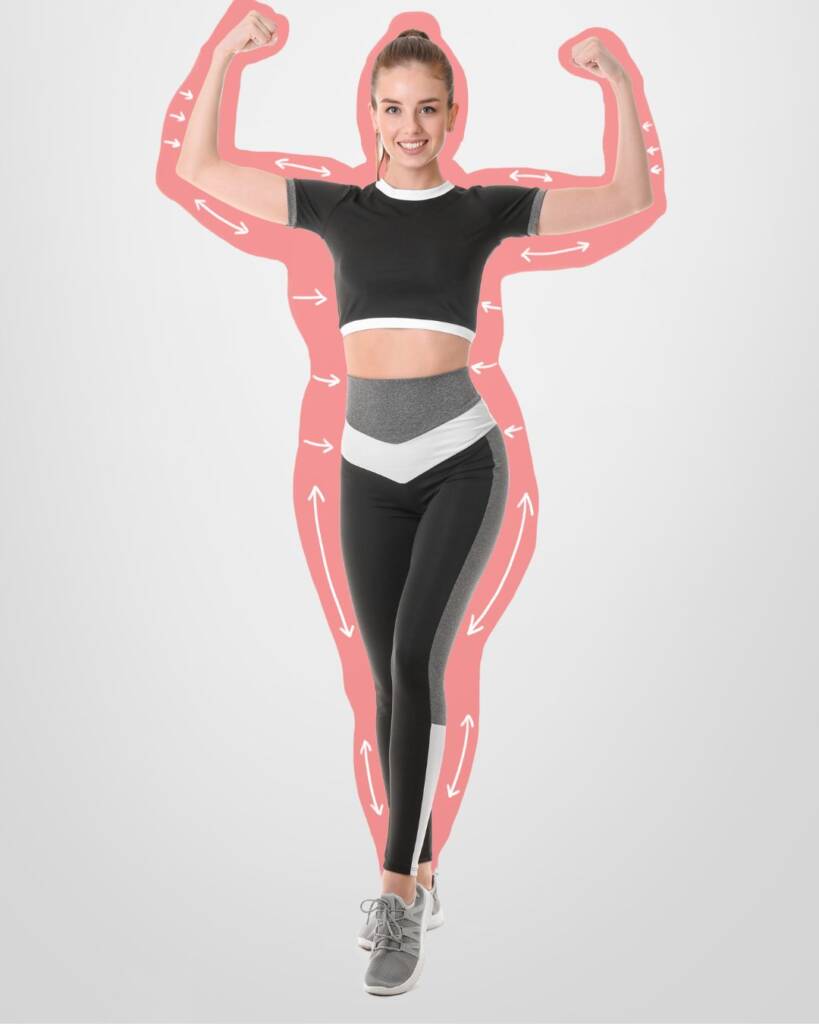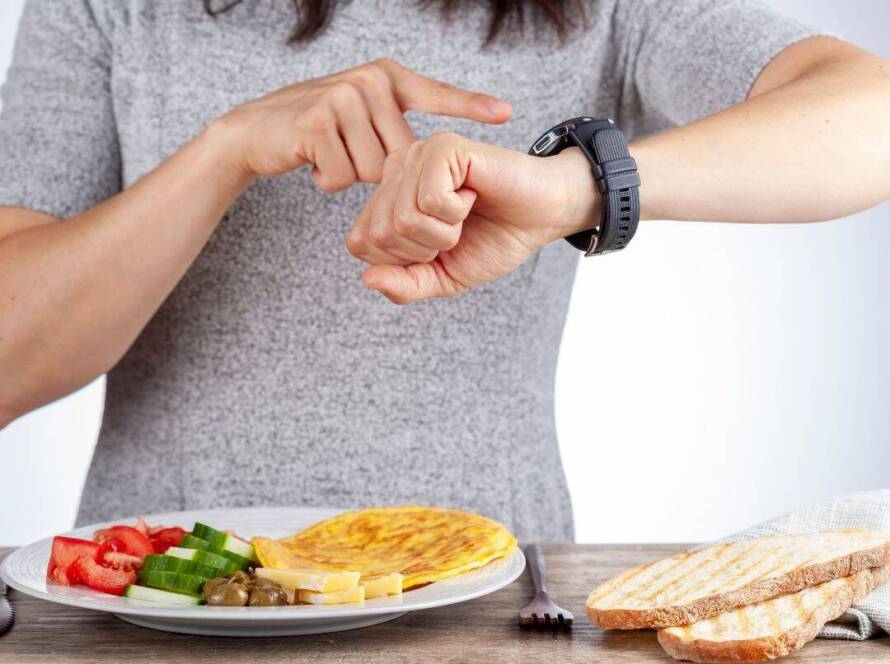Sometimes you feel like you’re doing everything right but the weight just won’t shift, but did you know that what you may think is good could actually be hindering your weight loss goals? Let’s unpack a couple of potential reasons why a calorie in and calorie out method is not working for you.
1. Skipping meals and fasting – everyone’s doing it so it must be great right? Even though fasting has been shown to have some amazing benefits such as weight loss, improving insulin sensitivity and reducing cholesterol ¹, chronic fasting and dieting has been linked to numerous deficiencies such as vitamins C, Bs, D, selenium, magnesium, copper, zinc and iron, which are all essential in the functioning of the body, but also to help your energy and metabolism along and can blood sugar crashes and binge eating ² ³. In other words, fasting is not for everyone, and skipping too many meals for too long might not be the solution for you. If you are fasting, make sure that you get all your nutrition in during your eating window, or have 3 regular, balanced meals a day.

2. Over-exercising
Although exercise is excellent for maintaining health, excessive exercising like HIIT and continuous aerobic training for longer than 60 minutes without proper recovery times can cause elevated cortisol and may actually slow your weight loss and metabolism and lead to fatigue ⁴ ⁵. Perhaps it’s time to slow down, try moderate exercise regimes such as walking, cycling, light jogging, yoga, Pilates or make sure you have adequate recovery times in between sessions, for example doing HIIT only 2X per week for a maximum of 25 – 30 minutes (including a warm-up), or reducing the intensity, so your heart rate does not go above 75% of maximum heart rate.
3. Sleep deprivation – can trigger imbalances in our metabolic hormones, such as the hormones responsible for hunger and satiety ghrelin, leptin, glucagon and cortisol, leading to increased hunger for the wrong high caloric, high fat and sugar foods and decreased metabolism. In addition, eating high saturated fats and little fibre, can also affect our quality of sleep, making this a two-way street ⁶ ⁷. So, make sure you cut down on stimulants like coffee in the late afternoon or evening, reduce phone & screen exposure and avoid training and eating too late at night to get a good night’s rest of at least 7-9 hours.
4. Eating too little fat – even though low fat diets are often advised for weight loss, essential fatty acids such as omega 3 fatty acids found in walnuts, fatty fish like salmon & mackerel, linseeds/flaxseeds, chia seeds, and unsaturated healthy fats from other nuts, seeds and extra virgin olive oil have actually been found to upregulate fat metabolism and because they are high in protein and fibre, aid in satiety and increase resting body energy expenditure ⁸ ⁹. So, in summary, don’t cut out the healthy fats completely (avocado, nuts, seeds, olive oil, fatty fish) but do reduce trans fats, saturated fats and damaged fried foods.
5. Eating foods listed as “healthy” because they are “low-fat” can be overly-processed and high in sugar, for example, 1 cup of regular yoghurt contains 4.66g versus 7.04g of sugar in low-fat yoghurt, and regular cottage cheese 0.37g of sugar versus 3g in low fat. These observations were also made when comparing baked goods, meats, poultry, mayonnaise and salad dressings. Obtaining more than 10% of daily calories from sugar can hamper weight loss and lead to diabetes and cardiovascular disease, so stick to regular unprocessed forms of food, which also helps with satiety and opt for olive oil and balsamic vinegar drizzled over salads instead of processed store-bought salad dressings ¹⁰.
If you need help with your weight loss journey, click here for a 15 free consult or here for an in depth initial consultation.


¹ Vasim I, Majeed CN, DeBoer MD. Intermittent Fasting and Metabolic Health. Nutrients. 2022; 14(3):631.
² Kiani AK, Dhuli K, Donato K, Aquilanti B, Velluti V, Matera G, Iaconelli A, Connelly ST, Bellinato F, Gisondi P, Bertelli M. Main nutritional deficiencies. J Prev Med Hyg. 2022; 63.
³ Tardy AL, Pouteau E, Marquez D, Yilmaz C, Scholey A. Vitamins and Minerals for Energy, Fatigue and Cognition: A Narrative Review of the Biochemical and Clinical Evidence. Nutrients. 2020; 12(1):228.
⁴ Hewagalamulage SD, Lee TK, Clarke IJ, Henry BA. Stress, cortisol, and obesity: a role for cortisol responsiveness in identifying individuals prone to obesity. Domest Anim Endocrinol. 2016; 56 Suppl:S112-20.
⁵ Cadegiani FA, Kater CE. Novel insights of overtraining syndrome discovered from the EROS study. BMJ Open Sport Exerc Med. 2019; 5(1).
⁶ Sejbuk M, Mirończuk-Chodakowska I, Witkowska AM. Sleep Quality: A Narrative Review on Nutrition, Stimulants, and Physical Activity as Important Factors. Nutrients. 2022;14(9):1912.
⁷ Papatriantafyllou E, Efthymiou D, Zoumbaneas E et al. , Popescu CA, Vassilopoulou E. Sleep Deprivation: Effects on Weight Loss and Weight Loss Maintenance. Nutrients. 2022; 14(8):1549.
⁸ Liu M, Montgomery MK, Fiveash CE, Osborne B, Cooney GJ, Bell-Anderson K, Turner N. PPARα-independent actions of omega-3 PUFAs contribute to their beneficial effects on adiposity and glucose homeostasis. Sci Rep. 2014;4.
⁹ Baer DJ, Dalton M, Blundell J, Finlayson G, Hu FB. Nuts, Energy Balance and Body Weight. Nutrients. 2023;15(5):1162.
¹⁰ Nguyen PK, Lin S, Heidenreich P. A systematic comparison of sugar content in low-fat vs regular versions of food. Nutr Diabetes. 2016 Jan 25;6(1)



